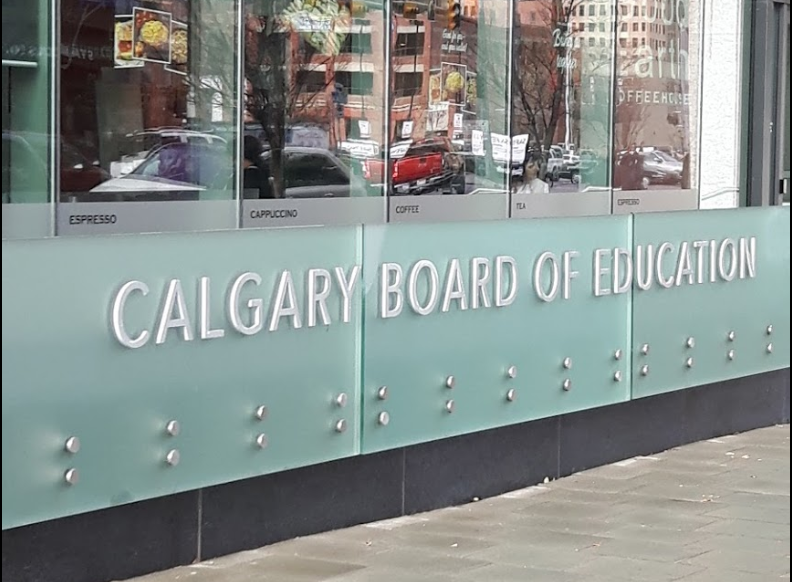When Larry Leach hit the doors for public school trustee in Wards 5 and 10 back in 2013, he was met with a lot of… meh.
“Oftentimes, I would walk up to the door and say ‘hi, I’m running for school trustee. Do you have any issues in particular,” Leach told LiveWire Calgary.
“Ninety-five per cent of the time I’d get a ‘no’ and then I’d give them my elevator pitch; what my campaign was about.”
In that 2013 Calgary election, the total number of votes cast for councillor was 24,550. The number of votes for public school trustee was 17,162. Add in a portion of the 7,000 votes from the Ward 9/10 Chestermere split of the separate school and Linda Wellman being acclaimed in the public vote and you’re likely under 20,000 votes.
That means roughly 4,500 fewer votes – nearly 20 per cent.
RELATED RESEARCH: University of Calgary professor, Jack Lucas – ‘Who has school spirit?’
In Wards 11, 12, 13, 14 where school board divisions are similar, roughly 60,000 votes were cast for school board candidates. That’s with one tight race in Wards 12/14, plus one acclaimed Catholic board seat.
By contrast, the city council candidates locked in around 79,000 votes – a roughly 30 per cent difference. That’s with three of the four ward races tallying margins of victory at 25 per cent or more.
Why is it that school board elections get less love from voters? What’s worse, is it’s conceivable that many voters hitting the polling station are simply marking their ‘x’ with little knowledge of the school board candidates. It’s just a choice on paper. (One could argue that happens with council candidates, too.)
Let’s take a closer look.
Hyperlocal concern from parents
Wing Li with the education advocacy group SOS Alberta said most people simply don’t know what a school board does.
“The run of the day parent is mostly concerned with the environment of their immediate school,” Li said.
“Their kids’, sort of, experience locally.”
Li said that’s the irony. School boards help allocate funds or deal with concerns from parents about the school environment.
“The advocacy side of schoolwork has never been magnified, or really like built up, because they are elected so they’re supposed to be a leg of democracy,” Li said.
“They’re supposed to be that accountability pillar for school.”
Joy Bowen-Eyre served as a public school trustee from 2010 to 2017, having served as board chair in the final four years.
Bowen-Eyre said her interest was sparked in being a trustee because of the work she saw at the William Van Horne School – a school that helped at-risk and vulnerable youth. She saw that the school was being closed down.
She was also concerned about the lack of supports for kids struggling with the basics like reading and writing.
“When I hit the doors, it didn’t resonate with people,” Bowen-Eyre said.
“They weren’t interested.”
Bowen-Eyre said one big reason is they’re overshadowed by the city council elections.
“It was really an uphill battle to put the importance of school board elections on the table,” she said. It’s particularly difficult in this Calgary municipal election.
“We’ve never seen an overturn of city councillors as high as we have. So, how does somebody who’s got a passion for public education contend, and fight for airtime in that space?”
The disconnection from citizens
Leach said he would trace the disconnect with voters to a decision by the province to strip taxing powers from boards back in the 1990s.
“If it doesn’t affect their pocketbook directly, then there’s not as much engagement,” Leach said.
It’s worth mentioning that the province takes a significant portion through Calgarians’ property tax bills. There’s an education portion of the property tax that’s sent annually to the province.
“Education dollars go to Edmonton first and then come back. So, if the school board spends a bunch of money on stuff it’s not directly billed to (citizens) and it’s not a cost that they see unless they have kids in the system,” Leach said.
There’s also the issue of the Calgary public board’s dissolution in 1999. It was dissolved after being deemed dysfunctional by the province.
Nancy Close, who’s running for public school board in Wards 11 and 13 in this election, was a trustee from 1999 to 2007. She said when talking with people one of the immediate responses she got was that residents didn’t have any kids in the school system.
“They can still vote for the public school board trustee because education matters to all of us,” Close said.
“It impacts us as a community. We can get behind students’ success because it makes our community better.”
Close also said it’s been a technical issue, too. You’re asked and then have to accept a ballot for school board (see numbers above). She said quite often if you don’t have kids, people decline the ballot.
Bowen-Eyre reiterated this. She knew it would be an uphill battle to secure a vote if citizens didn’t have kids in the system.
“Most people are like, ‘I don’t have kids in school and not interested.’ And it’s like well, you still can vote,” she said.
School boards’ re-emergence
University of Calgary political scientist Lisa Young said she’s been arguing with herself over the past year about the importance of electing a school board.
They have no taxing powers; they’ve typically made modest decisions about school closures, programs – mainly administrative decisions, Young said.
“What’s actually changed my mind on this issue is seeing the decisions that school boards have had to make in the context of the pandemic,” Young said.
“There, we’ve seen school board trustees who not only needed to make a decision that was in the best interest of the students in their school district, but also, that clearly had potential political ramifications for them.”
The public and Catholic boards have also made decisions on renaming schools to honour the Truth and Reconciliation Commission calls to action. Further, more than 95 per cent of schools have rejected the piloting of Alberta’s revised K-6 curriculum.
Young said that if we had school boards appointed by the province, we’d have all been worse off because of it.
“Now I’ve become sort of a board-again believer,” Young quipped.
The problem of awareness, however, is real, Young said.
School board races are low-information campaigns, particularly in the context of municipal elections.
“We can’t, for the most part, even think about how partisan ties, or orientations, or ideology might affect the kinds of decisions that the school trustee would make under most circumstances,” Young said.
What kind of information should voters seek to inform them on school board trustees, Young asked.
“We don’t know enough about the candidates. And we honestly don’t know enough about the kinds of things that that they’ll actually end up needing to vote on.”
Paying more attention – for the future
Leach said if school boards took a more active role in charting the course for education, rather than being a provincial lap dog, interest in them might change.
They are creatures of the province, however. Young said school boards know that they can be dissolved by the province if they step out of line.
But, there’s a glimmer of hope.
School is not just about the basics, it’s about the possibilities.
Joy Bowen-Eyre, former CBE trustee board chair
“The provincial government’s desire not to have any accountability for its decision making in the context of the pandemic has meant that they’ve been happy to have school boards make decisions about masks and closures rather than making them themselves,” she said.
“That empowers school boards.”
Given the heightened curriculum debate, concern over COVID-19 progression in Alberta schools and things like rising school fees and potential school closures has put this campaign on the radar. Just how much more remains to be seen.
Aside from the politics, Bowen-Eyre said school board elections are so critical to the future success of kids. A school board guides the programming, the environment, the shaping of Calgary’s kids.
These are young people who will be Calgary’s future leaders.
“Everybody has an understanding of what school looks like for them, but nobody has an understanding of what school needs to and should look like for the next generation,” she said.
“How do we prepare a kid who’s entering Kindergarten today for jobs that don’t exist. That’s the hard part.”
Calgarians should care about the school board they elect, Bowen-Eyre said.
“That’s why the importance of schools, and a school board, is so critical. We can’t be just thinking of the here and now,” she said.
“School is not just about the basics, it’s about the possibilities.”


